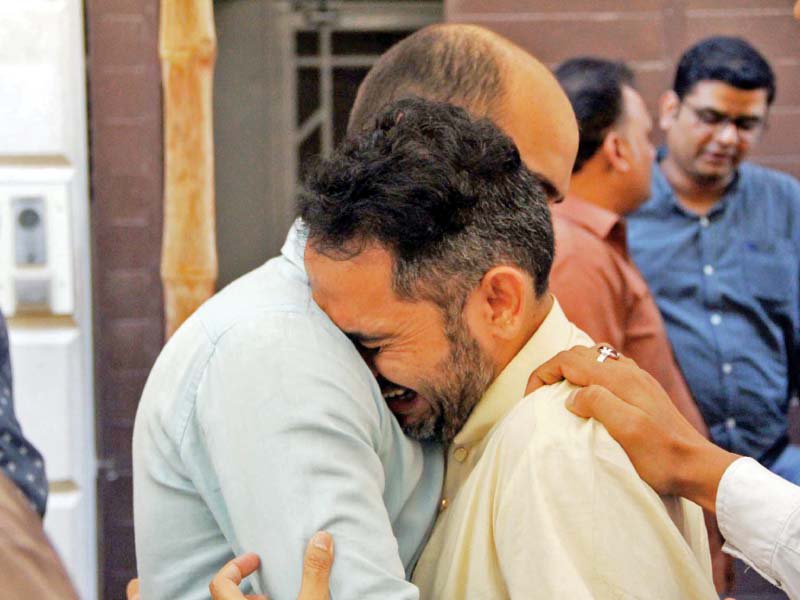
“Please do something together and do something so that no one else loses their daughter”, Qaiser Ali pleaded, “otherwise news reports like this will keep on running, pictures will keep being taken and officials will keep paying visits, but nothing will happen, nothing will happen.”
Earlier this month, Qaiser took his twins — Nashwa Ali and Amisha Ali — to Karachi’s Darul Sehat Hospital because they were suffering from diarrhoea.
Amisha was lucky, but Nashwa was not.
Before discharging the infants, one fatal injection entered Nashwa’s body and started snatching beat away from her heart.
“We don’t live in a good country. We don’t live in a good country. Here you cannot save anyone,” said Qaiser. When he says so, Qaiser is right.
In Pakistan, people are dying unnecessarily.
One will argue that death is inevitable. Yes, it is. However, no one wishes to see their loved ones die without an explanation to believe that it was bound to happen.
People don’t die in Pakistan anymore because of reasons like the old age factor, fatal diseases or accidents for that matter. They lose the battles of their lives due to the cold-bloodedness, incompetence and corruption.
A step out of the door, divinely forces must take one under their protective cover. One can be mugged, harassed, raped, wounded or worst comes, killed before giving a moment to react.
Kite-flying is a harmless sport. Nevertheless, it can be deadly in Pakistan. A string of a stray kite could be waiting at any street to slit one’s throat and leaving them dead. There had been attempts to make kite-flying safer or ban it altogether but all in vain.
Talking about stray kites, one should expect stray bullets from any direction, even if sitting in the safest corner of the house. To one’s surprise, bullets are to protect.
In the cases of Amal Umer, Sahiwal couple and Ahsan Sheikh, the victims were simply at the wrong place, at the wrong time. The intentions of the people who pulled the triggers were good.
The Sahiwal tragedy is an epic example of how the police encounters are (un) planned and executed without restraint in Pakistan. The super cop Rao Anwar would have continued his public service, had he not met with Naqeebullah Mehsud. Who knows how many he had encountered before?
In Nashwa’s case, her parents must be clueless before handing their daughter to executioners.
A patient is just a new case and a money-making machine for a majority of doctors and hospitals respectively in Pakistan. Just an everyday task.
As per a study, roughly one in 20 adults who visit US doctors’ offices and other outpatient settings are misdiagnosed yearly. In Pakistan, where healthcare is never a priority, misdiagnosis or missed diagnoses are far more common than one can realise.
Patients have trouble getting an answer to one’s symptoms. Others find that a treatment is not working the way it should. But with long working hours and their desensitised attitudes, doctors and hospitals are least bothered about a patient.
One can also eat food and die — no matter if it has been bought from a high-end restaurant or a small eatery.
From falling from the rooftop of a bus, drinking unhealthy water, electrocution by a naked wire, thrashing by a schoolteacher, to falling in an open manhole and being hit by a fast-approaching vehicle, human life has no worth in Pakistan.
Our systems have failed us. Here deals are finalised and politics is done, shamelessly, over bodies and when a life is gone, they expect one to be patient.
Where a helpless Pakistani will go when every heart and soul is corroded and the legal system is weak? One dares demand accountability before another Pakistani dies, so no one dies at the hands of those who are supposed to cure them.
Published in The Express Tribune, May 2nd, 2019.
Like Opinion & Editorial on Facebook, follow @ETOpEd on Twitter to receive all updates on all our daily pieces.













COMMENTS (1)
Comments are moderated and generally will be posted if they are on-topic and not abusive.
For more information, please see our Comments FAQ